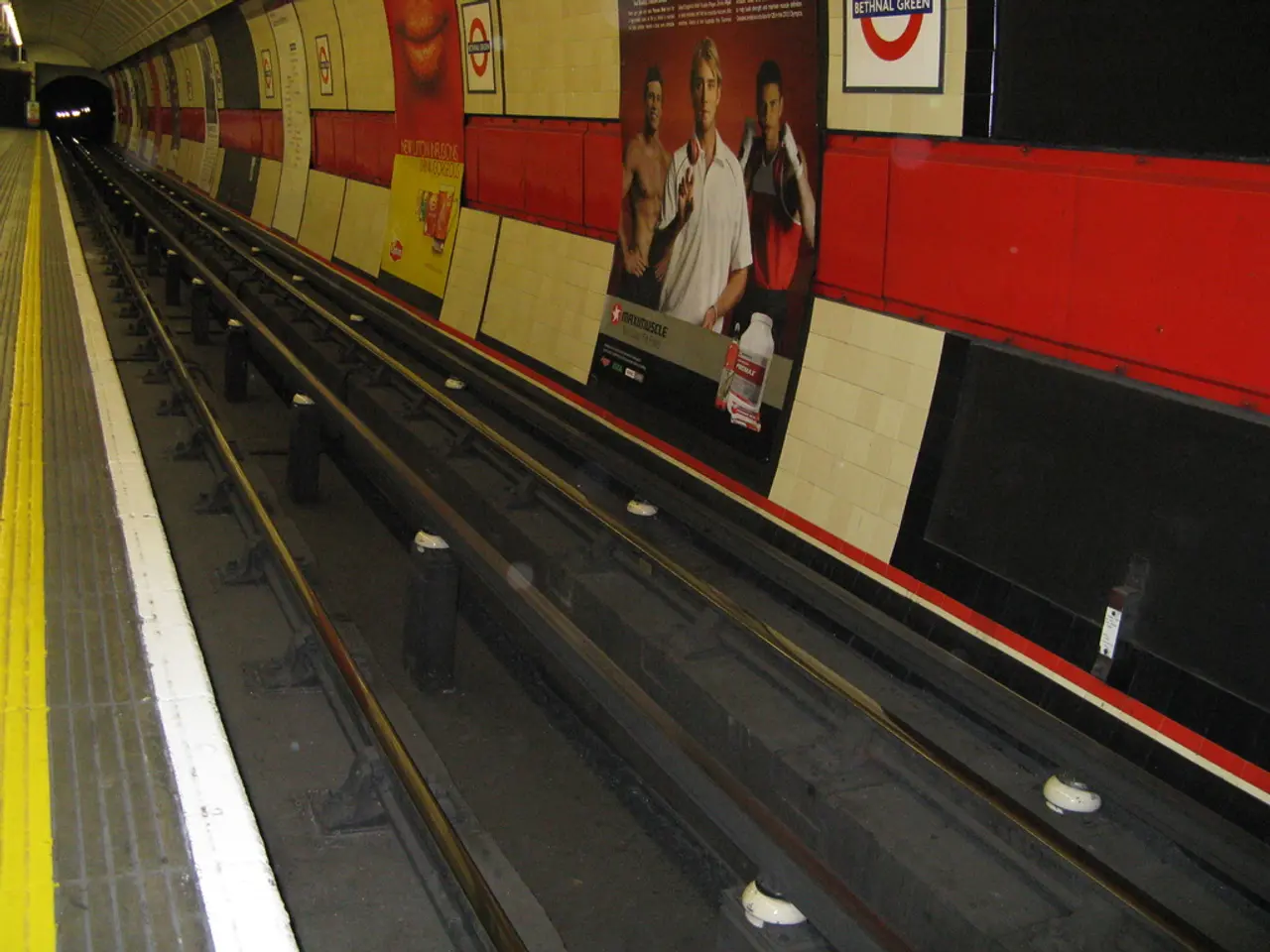Rainbow transformation of Berlin metro station follows controversy over Reichstag Pride flag display
In a surprising turn of events, the rainbow flag will not be hoisted in front of the Reichstag this year, as announced by Bundestag President Julia Klöckner (CDU). This decision comes after Klöckner ordered members of parliament to remove rainbow flags displayed in their offices, citing house rules and the need for neutrality in the Bundestag.
The removal of the rainbow flag from the Reichstag and offices of German parliament members has sparked public debate, with some arguing that it undermines LGBTQ+ visibility and inclusion. Critics, such as Green Party's Nyke Slawik, have stated that "declaring the rainbow a political symbol is highly problematic" and emphasized that "queer people are not an ideology; they are people!"
Despite the controversy, the annual Pride parade in Berlin, known as Christopher Street Day (CSD), is scheduled to take place on Saturday. The theme for this year's Berlin CSD is "Never again quiet!", reflecting the protest's indispensable role due to increasing attacks on the queer community and the questioning of recent achievements.
Hundreds of thousands are expected to participate in the Cologne Pride parade, while Berlin's CSD demo will start on Saturday at 12pm at Leipziger Straße / Charlottenstraße. The demo will make its way past the Bundesrat, to Nollendorfplatz, and around to the Brandenburg Gate.
The Berlin municipal transport company, BVG, has shown its support by decorating the Bundestag U-Bahn station with rainbow colours and a Pride flag. However, Chancellor Friedrich Merz (CDU) has supported Klöckner's stance, stating that "the Bundestag is not a circus tent." His comments have faced criticism from German leaders from opposition parties and former Berlin mayor Klaus Wowereit, who came out in 2001, who stated that Merz has a "great responsibility."
Interestingly, the conservative leaders of the Christian Union parties (CDU/CSU) have chosen not to support this year's Pride. In a show of solidarity, BVG posted on its Instagram page, "We are happy to help you fly the flag."
As the Berlin Pride marches on, the decision to remove the rainbow flag from the Reichstag continues to spark controversy and discussions about representation and rights for LGBTQ+ individuals in Germany.
The controversy surrounding the removal of the rainbow flag from the Reichstag and offices of German parliament members has led to heated debates on social media, with many expressing their dissent against the decision. Meanwhile, the debate on the political symbolism of the rainbow flag has taken center stage in entertainment and politics, with politicians like Nyke Slawik from the Green Party voicing their concerns. The ongoing debate about representation and rights for LGBTQ+ individuals in Germany is also a hot topic for general news outlets, fueling public interest and discussions.



